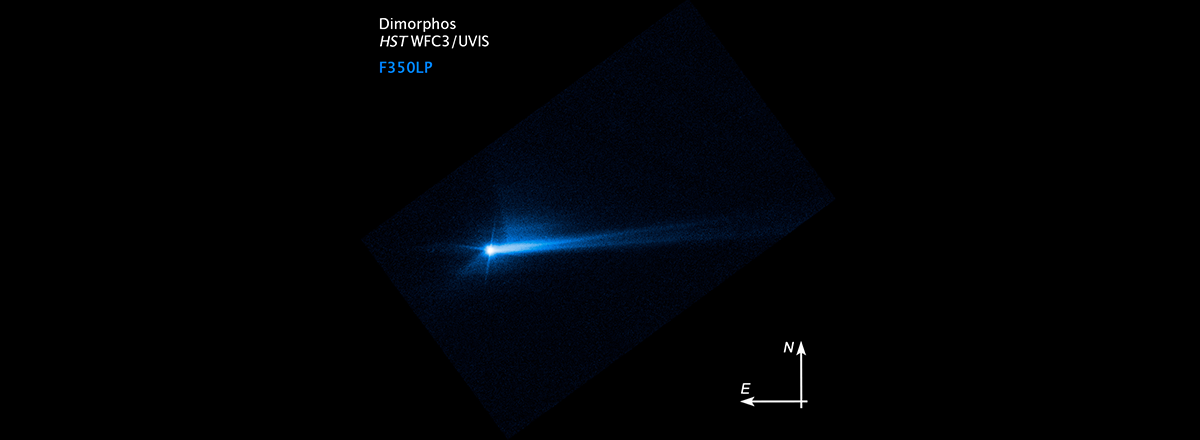NASA's DART Spacecraft Successfully Changed the Orbit of an Asteroid
The goal of DART was to change the orbit of Dimorphos around the larger asteroid by at least 73 seconds, although scientists had hoped the effect would be more like 10 minutes. This minimum benchmark has been exceeded by more than 25 times.

NASA announced that the DART spacecraft has successfully altered the orbit of the asteroid it crashed into as part of a planetary defense test. This way, NASA's mission became the first ever successful attempt to change the trajectory of a celestial body in the history of humanity.
The DART (Double Asteroid Redirection Test) spacecraft made its dramatic arrival at its destination and crashed into a small asteroid called Dimorphos on September 26, and since then, astronomers from Earth have been assessing how the asteroid's orbit had changed. The probe hit the asteroid at a speed of about 22,500 km/h.
The mission was intended to test a potential planetary defense technique in case a large space rock ever threatened to collide with Earth, although NASA is not yet aware of any such possible threats in the near future.
Before the impact, it took Dimorphos 11 hours 55 minutes to orbit the larger asteroid, Didymos. While initially it was planned to change the orbit period by at least 73 seconds, it now turns out that the period has changed by as much as 32 minutes – from 11 hours 55 minutes to 11 hours 23 minutes (with a margin of uncertainty of approximately ±2 minutes). In other words, the minimum benchmark has been exceeded by more than 25 times.
Scientists now know that it is possible to direct a spacecraft with the speed and accuracy necessary to impact even a small body in space if it ever poses a threat. As new data comes in every day, astronomers will be able to assess even better whether missions like DART can be used in the future to help protect Earth from a potentially dangerous asteroid collision.

